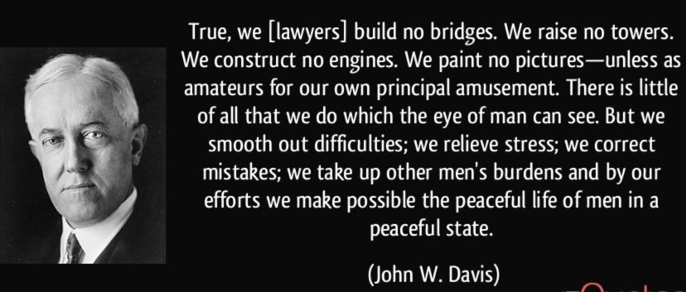For Trial Warriors – A Time To Reflect
FOR TRIAL WARRIORS….A MOMENT TO REFLECT
By Robert C. Bonsib, Esq. and Megan E. Coleman, Esq.
The times – they are a’changin’…(Bob Dylan) and – we are sure “the times” will likely be different when this article is read than they were at the time that this article was written.
These are indeed challenging times for those in our profession. For trial lawyers – and, in particular, we would submit, criminal trial lawyers – this time has been particularly challenging.
For this article we have put the books aside – turned off Westlaw and not scoured the Judiciary’s website for new cases of interest. With some unusual quiet time – we reflect on who and where we are as a profession in pandemic times.
While we recognize that all of our brothers and sisters at the bar have been challenged during these times – it becomes incredibly more difficult to represent a client when that client is detained – often in a facility where visiting has been suspended – or perhaps restricted only to legal visits.
Family members cannot visit those detained. Lawyers have to balance the need to interact with their detained clients with their concerns not only about their personal safety – but also concerns about being the unintended carrier of Covid-19 to professional colleagues – and family and children.
Detained clients press us to file motions for release. Some are successful. Many others we know are not going to be granted because of our client’s history or the nature of the offense. Do you refuse to file an motion that you know the court will view as “frivolous” and wonder what planet you come from in asking that the Court consider releasing your client? Yet, how do you respond to a client and client’s family who insist that – at least you try?
Every day the landscape is changing. Courts on one day deny motions for release on the basis that Covid-19 has not “arrived” at a particular facility. Yet days or a week later – it is detected and spreading.
Clients want their cases resolved – civil and criminal. But timelines and deadlines are suspended – and under current circumstances do we really want to be shoulder-to-shoulder with our colleagues in the courthouse – and in particular, in a packed courtroom. Even more a concern – do we want to be in proximity to those we do not know – where we don’t not know if those persons are practicing social distancing or are part of the social distancing rebellion – and thus putting all around them at risk.
There is no reliable information that currently permits us to advise most clients with any degree of certainty as to when their cases will be rescheduled. Clients in jail – particularly those who are insistent that they have been wrongfully charged – want their day in court. They may not have been released because they have been deemed to be “a danger to the community” or “a risk of flight” – yet still also presently being presumed to be innocent. And we know when their cases are scheduled – some will be found guilty – but some will also be found not guilty – or their cases will be dismissed – or an agreement will be reached that will result in their release – but perhaps at a time much later than would have been the case if the courts were open. As we tell our clients when there are concerns about deals that require the payment of money – you can always make more money – but you can’t get back time. Many of our clients are going to “lose time” that they will never get back – time that would have been spent with their family – their children – jobs that were lost and are not coming back – because their cases were not able to be promptly resolved. And the fault is not theirs nor is it ours.
Our classes in law school did not prepare us for times such as these.
So what do we do? What is the answer? A few thoughts.
We are a profession that proudly wears the label – “counselor.” One dictionary defines a “counselor” as someone who is trained to listen to people and give them advice about their problems.
We spend many years in school – and many classes in law school – being challenged to think and seek to address seemingly impossible fact patterns. Every trial lawyer knows the feeling of being confronted with a new case where the odds of success seem insurmountable. We don’t give up – the more difficult the case – the more we get “juiced up” to engage in the fight and meet the challenge. It is was we do. And, it is what we love to do.
There are some skills we may need to especially remember – particularly in these times. Listening to our clients. Even where our ability to offer relief may be limited – or even non-existent – sometimes we just need to listen. With moms, dads, wives, husbands or significant others of loved ones who are in jail we must be patient. We know we have had to tell ourselves (and not always successfully) – just listen – we may know that we cannot offer any prospect of relief – but we can listen – we can empathize – we can offer a sympathetic ear. Sometimes that is all we can do – and sometimes it helps a little for the family member of a client who can’t communicate with their loved one.
We are trial lawyers – we are warriors – we advocate – we fight – we accept the fact that we might lose – if we are on the criminal defense side, perhaps more often. But the greater the challenge – the more we get charged up. When you feel that feeling that maybe things are getting overwhelming – go to YouTube – search for Tom Petty’s song – play it – get charged up
Well, I won’t back down
No, I won’t back down
You can stand me up at the gates of hell
But I won’t back down
No, I’ll stand my ground
Won’t be turned around
And I’ll keep this world from draggin’ me down
Gonna stand my ground
And I won’t back down
https://www.youtube.com/watch?v=nvlTJrNJ5lA
Again – remember WE ARE WARRIORS! –

When the courts open up – judges and all components of the court system will be facing challenges that are equal to those we face in representing our clients. The balancing of competing interests and priorities that we all will face in being aggressive, understanding, and cooperating will be unprecedented.
The legal community – and perhaps this is a little parochial, but I think, in particular the criminal bar – both defense and prosecution – have a history of civility – that is maintained even as we do battle in the courtroom. We need to cherish that history and commit to continue it.
It took some time to dig up a copy of the Maryland State Bar Association’s Code of Civility – the “rules of the road” for conduct that keeps our profession proud. It is worth a moment or two to occasionally review the Code.
MARYLAND STATE BAR ASSOCIATION CODE OF CIVILITY
Civility is the cornerstone of the legal profession.
LAWYERS’ DUTIES
1. We will treat all participants in the legal process, in a civil, professional, and courteous manner and with respect at all times and in all communications, whether oral or written. These principles are intended to apply to all attorneys who practice law in the State of Maryland regardless of the nature of their practice. We will refrain from acting upon or manifesting racial, gender, or other bias or prejudice toward any participant in the legal process. We will treat all participants in the legal process with respect.
2. We will abstain from disparaging personal remarks or acrimony toward any participants in the legal process and treat everyone with fair consideration. We will advise our clients and witnesses to act civilly and respectfully to all participants in the legal process. We will, in all communications, speak and write civilly and respectfully to the Court, staff, and other court or agency personnel with an awareness that they, too, are an integral part of the judicial system.
3. We will not encourage any person under our control to engage in conduct that would be inappropriate under these standards if we were to engage in such conduct.
4. We will not bring the profession into disrepute by making unfounded accusations of impropriety or attacking counsel, and absent good cause, we will not attribute bad motives or improper conduct to other counsel.
5. We will strive for orderly, efficient, ethical and fair disposition of litigation, as well as disputed matters that are not yet the subject of litigation, and for the efficient, ethical, and fair negotiation and consummation of business transactions.
6. We will not engage in conduct that offends the dignity and decorum of judicial and administrative proceedings, bring disorder to the tribunal or undermines the image of the legal profession, nor will we allow clients or witnesses to engage in such conduct. We will educate clients and witnesses about proper courtroom decorum and to the best of our ability, prevent them from creating disorder or disruption in the courtroom.
7. We will not knowingly misrepresent, mischaracterize, or misquote fact or authorities cited.
8. We will be punctual and prepared for all scheduled appearances so that all matters may begin on time and proceed efficiently. Furthermore, we will also educate everyone involved concerning the need to be punctual and prepared, and if delayed, we will notify everyone involved, if at all possible.
9. We will attempt to verify the availability of necessary participants and witnesses so we can promptly reschedule appearances if necessary.
10. We will avoid ex parte communications with the court, including the judge’s staff, on pending matters in person (whether in social, professional, or other contexts), by telephone, and in letters and other forms of written communication, unless authorized.
One of the beneficial side effects of the “stay-at-home” recommendation – even for us “essential” folks – is that we get a chance to think about what we are doing – rather than constantly running ‘hither and yon” all the time.
When I returned to the Prince George’s County States Attorney’s Office in 1987 after serving as Assistant United States Attorney to accept the offer of then recently elected State’s Attorney Alexander Williams, Jr. to be his Deputy States Attorney for Operations, I gathered the lawyers and investigators in what was then the large ceremonial Courtroom, together for a “charge.” I charged the fifty or so prosecutors who were assembled to remember that in the courtroom they wore – and should proudly wear the “White Hat” in the courtroom. That the people in our county looked to them to protect and represent their interests and to see that they received “justice” in the county courts. In1990 I entered private practice soon realized that there are two “White Hats” in each criminal courtroom. We believe it cannot be repeated enough – advocates on both sides in the well of the courtroom wear a “White Hat.” It is only when two worthy and aggressive advocates battle in the courtroom does justice have the best opportunity to be served. Our system is imperfect. The results in the courtroom are not always correct. But the best chance for the right and just result is when the “White Hats” are worn proudly and we engage in professional, aggressive, ethical and civil advocacy.


We need to continue to be diligent. We need to be open and innovative as we move forward to continue to seek the best justice in the most difficult times. Our safety, those of our professional colleagues and associates are critical and our challenge to be safe and continue our history of advocacy for our clients will test everything about why we are in this profession.
We can do it and we will do it – and we are fortunate that we have a long history of the bench, bar and all associated partners in the criminal justice system working together to solve our problems. We can and we will do this – but we do need to listen – take a breath – balance our needs and safety with the needs and safety of our clients and others.

To our friends and colleagues, we say – “be safe” and continue to carry on in the finest traditions of our profession and local legal community.
